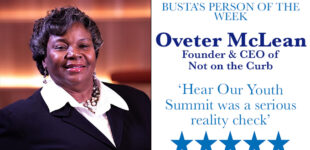Commentary: Don’t give rap a bad rap
Guest Columnist Carledward Russell

Carledward Russell
Guest Columnist
Rap is an art form that can be misconstrued by many despite the personal experiences rappers willingly share. So much goes into what rappers say, and it is very likely that those who do not listen to rap will misinterpret their message behind each lyric. Rap becomes more than just words composed into a beat. It is able to convey a deeper meaning by telling stories.
For instance, take one of J. Cole’s masterful lyrics, from his song “Never Told”:
“Cause Cupid aims and throw the darts, there go the sparks and broken hearts, Who wanna build Noah’s Ark just to have that sh*t torn apart?” Some probably do not understand why he swore in the same verse as he made a biblical reference, but that takes away from the true meaning of this line. He means that love can be imperfect, but can also quickly turn into turmoil. Who would want to spend so much time on a relationship just for it to fall apart in an instant?
Many journals have dedicated time to try and comprehend rap music better. The Journal of Negro Education (Richardson & Scott, 2002) mentions rap music and how it influences many factors. Some of the topics discussed were violence, its influence on youth, and their decisions. As offensive as some lyrics may be perceived by outsiders who have yet to experience African-American culture, the truth is said to be created by a “Black urban youth culture in a troubled world” (Richardson & Scott, 2002). Rappers express their experiences lyrically. Outsiders perceive rapping as, for lack of a better term, “ghetto.” One cannot simply blame someone for telling their stories, and expressing it in a culturally artistic format. Some lyrics, however, are merely for entertainment. Today, the use of derogatory slang, such as “hoe” and “b*tch,” are filled in rap songs. Of course, the degradation of women in songs and music videos is morally unacceptable and needs to stop. While some may take offense to the slang, it is important to know rappers use words such as these because it has become a social norm. No one has confronted the issue of rappers verbally abusing women. If this trend continues, this issue will continue to exist.
Adolescents often listen to the uncensored music created by rap stars because they look up to them as role models. The description of sexual encounters are not intended for young children, demonstrating that rap is intended for adults. Despite efforts to censor music, young children still listen, and try to imitate their ways. All in all, no matter the difference in age, race, and gender discrimination, rappers’ continued success serves as proof that rap has an unmatched ability to “capture the youth’s attention” (Richardson & Scott, 2002, p. 176). Meaning that no matter how much some people may not like it, rappers are always going to have an audience and a following that supports them. Next time you listen to a song, listen for the deeper meaning, because chances are there is one.
Carledward Russell is a rising senior at Reagan High School in Pfafftown, NC, who is attending a summer academic enrichment program at the University of North Carolina-Chapel Hill named Uplift Plus.
References
Richardson, J. W., & Scott, K. A. (2002). Rap music and its violent progeny: America’s culture of violence in context. The Journal of Negro Education, 71(3), 175–192. http://doi.org/10.2307/3211235















